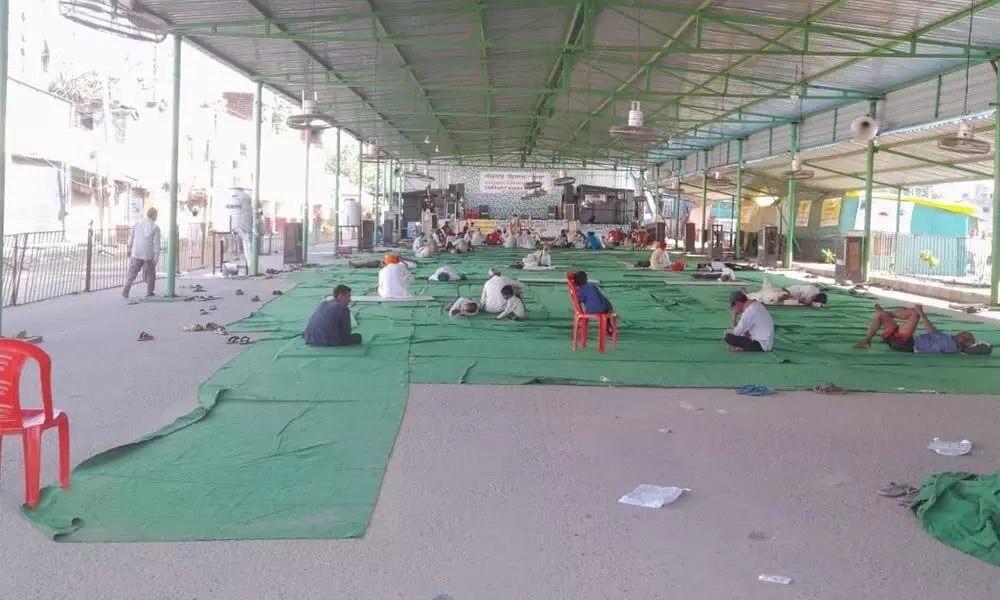How Singhu residents learnt to live with protestors
CLOSE to 10 months since the protest against farm laws broke out, thousands of farmers at Singhu-Kundli border are living in the makeshift tents and have embraced the living arrangements.
image for illustrative purpose

(Haryana-Delhi border): CLOSE to 10 months since the protest against farm laws broke out, thousands of farmers at Singhu-Kundli border are living in the makeshift tents and have embraced the living arrangements. Bizz Buzz spoke to several protestors who have been living at the protest site and their next course of action on the movement. 64-years-old Surjit Singh, one of the many farmers from Mohali, says that one member from each farmer family stays here at the protest camp, and usually goes back home only once another family member joins in. Women and children take a stroll at the protest site of Singhu Border during the day to get a sense of the overall scenario of the movement.
When asked if they understand the meaning of the protest, children say that they are aware of the cause of the dharna and that the government must repeal the farm laws. The camping area at Singhu border is stretched over 15 kilometers and has over 12 kitchen camps, each with a capacity to prepare meal for 400 to 500 people per shift. At Singhu Border, one can see long stretches of makeshift beds, toilets, medical camps and prayer rooms for all.
"The residents of Singhu and Kundli have been rather kind to us. Most of the nearby small business owners and Kirana stores have been benefitting since their sales have increased. As you can see, many of localities have set up makeshift shops selling shoes, mobile phone covers, clothing items," 72 years old Gurnan Singh says.
Residents from Singhu and Kundli, too, seem to have adjusted to the current circumstances wherein localities access offices and factories through the protest site. "I commute through the site to go to Haryana villages as the highway has been blocked due to protest. What usually takes me 10 minutes to cross Delhi-Haryana border, now takes me 45 minutes to an hour, since we have to take detour from village of Singhu," says Sonu Kumar, who supplies grocery items at the shops of Kundli village, Haryana.
But Sonu says that the protest has been a blessing in disguise for small shopkeepers as they have found ways to new "customers" amongst the protesting lot.
"The farmers purchase loads of wheat, rice and condiment from the local shops which has in fact boosted their sales. And since the Langar (meals) made by the protestors are open and free for all, local labourers also go to the sites to have food," Sonu added.
On a daily basis, protesting groups hailing from different parts of India including Uttar Pradesh, Haryana, Punjab, Maharashtra, West Bengal and Tamil Nadu, gather at a makeshift stage twice a day to discuss the next course of action. Many say that they will not march towards the national capital since their ongoing mode of resistance is enough to make a statement.
Apart from wifi connections, protestors at Singhu have also set up washing machines, along with makeshift washing basins for the "new residents" at Singhu-Kundli highway. Many of the protestors stated that the battle against the farm laws will be long affair hence basic necessities for health, hygiene and food have been taken care of for thousands of demonstrators.

